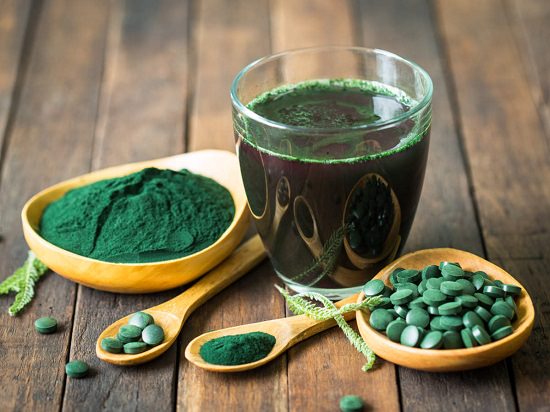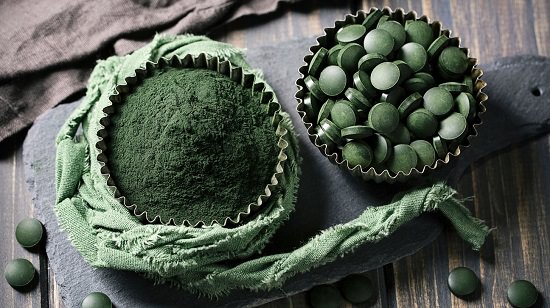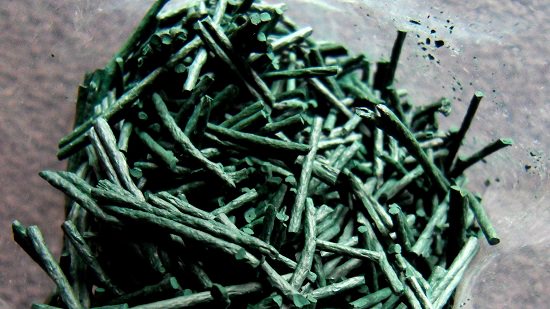One of our readers asked- “When should we consume Spirulina”? Read the answer with relevant facts in the below article.
Spirulina History
Spirulina is a blue, green alga that grows in alkaline lakes. It maybe one of the oldest life forms. The Aztecs were first used as an endurance booster to run marathons and treat various diseases. It is now a superfood with a high protein content equal to eggs. It has a bitter taste and lends flavor and natural blue color to foods. Many people wonder about the benefits of spirulina and when should we consume spirulina. In an attempt to answer these questions, we’ve compiled enlightening information about the supplement in this article.
Nutritional Profile
One tablespoon of spirulina contains:
- Calories 20
- Protein 4gm
- Fat 1 gm
- Carbohydrates 2gm
- Fiber 0 gm and sugar 0 gm
- Vitamins A, B1, B2, B3, B6, K
- Minerals like copper, magnesium, potassium, phosphorous, calcium, zinc, and iron.
When Should We Consume Spirulina
Spirulina is available commercially as tablets, juice, capsules, and powder. You can add the powder to salads, soups, fruit and vegetable juices, smoothies, yogurt, and/or other healthy food. However, be mindful that you must not cook spirulina and only add it in the final stages of the cooking. You can take the tablet as a supplement, but the dosage will depend on your age, gender, and medical history. You can take 1 tsp of spirulina powder in a glass of lemon water or take the tablets with water an hour before your meals. Up to 10 grams of spirulina per day have been used without side effects.
Spirulina’s nutritional and health benefits are most beneficial if you take it in the morning before meals. It increases insulin sensitivity, helps derive energy from the food you eat, and prevents the body from storing food as fat. Some people take spirulina when they find their energy levels low at any time during the day. If you distribute the dose throughout the day or take it simultaneously, it doesn’t make much of a difference. However, as it increases alertness, avoid taking it at night or take it at least 4 hours before bedtime.
Spirulina Benefits
1. Vegan Alternative
It has a high protein and vitamin content, making it an excellent dietary supplement for vegans and vegetarians.
2. Aids Weight Loss
Since it is nutrient-rich and calorie deficient, it is a good supplement for weight watchers. In addition, it increases the metabolic rate and helps burn more calories which again aids weight loss.
3. Natural Cleanser
It counteracts the toxic effects of pollutants on your body. It is a natural cleanser and helps detoxify the body. Spirulina lowers fasting blood sugar levels too.
4. Rich in Vitamins and Minerals
Spirulina’s amino acid, vitamin B, iron, and zinc content helps to keep your hair healthy and promotes faster hair growth. The iron in spirulina is also easily digested without producing any side effects and helps prevent anemia.
5. Exclusive Properties
It contains plant pigment phycocyanin which has antioxidant, analgesic, immunity-boosting, anti- inflammatory, anti-tumor, and neuroprotective properties. Antioxidants boost the immune system.
6. Aids in Chronic Diseases
The anti-inflammatory properties of spirulina protect against chronic diseases and cancer. Mental health is improved by relieving stress and anxiety and improves mood. Besides, it boosts the production of white blood cells and helps your body fight infections.
7. Vision and Oral Health
A plant pigment zeaxanthin which prevents the formation of cataracts and age-related vision problems. Anti-bacterial properties protects against oral problems like dental plaque, gingivitis, and oral cancer.
8. Cardiovscular Health
Spirulina helps reduce the body’s absorption of cholesterol, thus lowering cholesterol levels. It also helps lower triglyceride levels in your blood and thereby keeps your arteries and heart-healthy. The superfood increases nitric oxide production in your body, which helps to relax blood vessels and lower blood pressure.
9. Anti-Allergen
Spirulina’s anti-inflammatory properties help combat the symptoms caused by allergies, namely, congestion, sneezing, itching, and swelling.
Precautions and Side Effects
- Spirulina can, in some cases, cause allergic reactions, headaches, muscle pain, and insomnia. Take it after medical consultation.
- It can get contaminated with toxic metals, harmful bacteria, and other toxins if grown in unsafe conditions. These toxins have the potential to cause liver damage.
- The toxins can pose a risk to pregnant and breastfeeding women, and so, it is best to avoid spirulina in these crucial phases.
- Spirulina can reduce blood clotting, hence if you are on blood thinners or suffer from bleeding disorders, it is prudent to avoid it.
- Spirulina boosts immunity and it is better to avoid this supplement if you suffer from an autoimmune disease like lupus, arthritis, or multiple sclerosis.
- If you suffer from allergies, thyroid problems, gout, kidney stones, or phenylketonuria, then seek medical advice before using this supplement.
- We should also warn people with diabetes that spirulina affects blood sugar levels. If you are on blood-thinning drugs, immune-suppressants, or diabetes medication, spirulina might interact with the action of these drugs.





